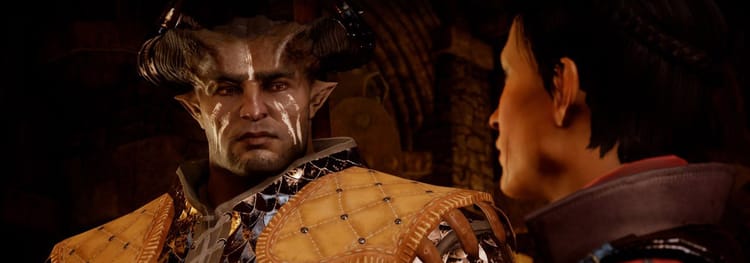Will Work for Fun

Revolutions are often thought of in terms of conflict and disorder, but they just as often come on waves of peaceful obsolescence. The old way of doing things is allowed to linger as long as it likes while everyone else gets on with the future. In the last few years the “free-to-play” model— where games are given away on mobile phones or online while the developer makes money through advertisements or the sale of in-game items—has encircled the videogame industry. At first it seemed like a curiosity, a unique idea that made sense in China and Korea, where loot-hoarding games like Ragnarok Online, The Legend of Mir, and World of Warcraft found a perfect match with internet bar culture. Meanwhile Activision and Electronic Arts competed for dominance in a luxury business energized by dreams of $180 Rock Band bundles and franchises with the “potential to be exploited every year across every platform.” When rumors began circulating last month that Nexon, one of the biggest free-to-play companies in the world, might bid to acquire EA, it seemed clear that an era was passing.
The original Super Mario Bros. defined the console blockbuster with more than 40 million copies sold worldwide. After going free-to-play, Angry Birds has been downloaded over 700 million times (though some versions are still sold for 99 cents). The scope and stakes of videogame commerce have irrevocably changed, and, in a way, the value of the medium has degraded as a result. Designers are no longer selling games to people who want to buy them, they are selling their audiences to advertisers. Worse yet, they are using them as an interactive form of muzak, creating a lively backdrop against which the small percentage of people willing to spend money on new quests or in-game trinkets will feel more likely to spend.
While this transition is alarming, it is also a predictable function of the capitalist lifecycle. “The bourgeoisie cannot exist without constantly revolutionizing the instruments of production,” Marx and Engels wrote in The Communist Manifesto, “and thereby the relations of production and with them the whole relations of society.” In societies where the creation of capital does not frame social relationships, the traditions of production are preserved from generation to generation, and the things created through them accepted for their inherent value. In early Maori villages, for instance, creating food was not a means to make money or increase one’s station in life. The foods created through fishing and farming were openly exchanged as a way of showing commitment to the community, and the method of producing them remained relatively constant. In a capitalist mode of production, the ultimate value is not in the object but in the “need of a constantly expanding market for its products,” something which pushes those who control capital to “nestle everywhere, settle everywhere, establish connexions everywhere.”
Designers are no longer selling games to people who want to buy them, they are selling their audiences to advertisers.
In the 1990s and 2000s the supply chain was essential to the ever-expanding reach of videogames. EA did not sell tens of millions of copies of Madden because it was the best football game in the world, but because it was the best football game that could be mass-produced on cartridges and discs, shipped to the biggest retail chains, and advertised en masse through an increasingly complex network of marketers. The value of that vast and highly-developed supply chain is waning, having been surpassed by a model that does not require retailers, shipping companies, or manufacturing plants. The means of production have changed. There are still animators, environment artists, level designers, and AI programmers. What has changed is the method of producing value from the game created by those groups of people.
You might have waited in line at a midnight launch to get Madden NFL 06 a few years ago and today find it in a bargain bin for $1. The game is unchanged, and its inherent value as an experience is identical to what it was then. What has changed is the perception of its value, driven by corporations whose business model relied on there constantly being a new game every year, one which necessarily obviated last year’s model. We were not simply buying games in the days of brontosaurus-sized publishers like EA, we were paying for the privilege of participating in a zeitgeist that was largely created by corporate branding. With the advent of Facebook, iOS, and Android, people no longer need to pay to participate in the zeitgeist (save the price of the computer or phone), it’s given to them for free. And the creation of a valuable-seeming zeitgeist for a free game versus for a $60 game requires completely different means of production, one which companies like EA, Activision, and Ubisoft are struggling to adopt.
/ / /
Thinking of videogames as “free-to-play” reminds me of why I hate to play games with other people. In its purest form, play is a creative act negotiated between two people without intermediary. I am not playing when I’m interacting with a videogame, I’m accepting someone else’s rules and experimenting with them, allowing the designer to delimit my instincts for behavior. Doing this with another person feels like a waste of time, an inherent loss of the generative possibilities of play without intermediary limits. Videogames are the experience of being ruled. In contrast, play is the experience of generating new rules in collaboration with someone else. The idea that “play” is free is redundant. It is only ever free. As soon as money is involved it no longer simply “play” but a perverse form of labor, proving one’s worth as a participant in, and exponent of, the zeitgeist.
This playful labor is best incentivized through systems that turn skill and learning into capitalized quantities. When we say a player is “good” at a videogame, we are essentially saying they have mastered the craft of play, they have internalized the limiting rules of the game to such a fine degree they have achieved a sort of hyper-efficiency. A good Combat Arms player is substantively more efficient and productive in his aiming, movement, and item management. A “fun” match of Combat Arms is one where players of similar skill levels test their proficiency against one another and the most efficiently willing to adopt the game’s rules is awarded with recognition in the form of a hierarchal list that tells them they are number one. It is labor, capitalized by a release of new items, skills, and perks that reward efficient performance.
The best players in the world are workers, not players. They login regularly and accept the game’s imperative limits and, week-by-week, learn to master them. People who play Combat Arms with no respect for the rules and no interest in being an efficient shooter on a hierarchical list are reported to moderators and treated as spoilsports. Play in its simplest sense is prohibited; what’s needed are rule followers.
Videogames are the experience of being ruled.
“Capitalism cannot make use of the labour of those who practice the doctrine of undisciplined liberum arbitrium, any more than it can make use of the business man who seems absolutely unscrupulous,” Max Weber wrote in The Protestant Ethic and the Spirit of Capitalism. Weber’s argued capitalism was uniquely accelerated by the emergence of Protestantism and its philosophy of general prosperity reflecting holy virtues in the prosperor. Frugality, efficiency, and prosperity are not secular distractions but true reflections of grace.
“If God show you a way in which you may lawfully get more than in another way (without wrong to your soul or to another), if you refuse this, and choose the less gainful way, you cross one of the ends of your calling, and you refuse to be God’s steward, and accept His gifts and use them for Him when He requireth it: you may labour to be rich for God, though not for the flesh and sin,” the English theologian Richard Baxter explains, as quoted by Weber.
With the emergence of professional pastimes in the 20th century, the Protestant work ethic becomes a philosophy of play as well as vocation. Michael Jordan is not a world-class basketball player because of his innate skill, but as a reflection of 15 years of labor spent improving his efficiency relative to the particular rules of basketball. Jordan’s creative skill playing within those rules is not a natural expression of who he is but the inflated byproduct of a labor system that favors competition over stability. The mirage of wealth and fame are the righteous payoff for all the diligent 5 a.m. workouts and late-night shoot-arounds after everyone else had gone home.
As videogames have been added to the list of professional pastimes in the 21st century, we see the same essential values favored in them, with the added perversity of requiring their audience to spend money to buy into them. That the high cost of the disc and cartridge has been circumvented by the “free-to-play” model only amplifies the nature of videogames as non-productive labor, loosely built upon structures that demand skill acquisition and increasing efficiency. Because console games have, in all but the most spectacularly escapist incarnations, lost a significant part of their surplus appeal now that “free-to-play” has undersold them, the laborious core of videogames is emerging.
When you’re out of money to give a company, you can always give them your time.
In an interview with PC website Seven Day Cooldown, Gabe Newell described the challenges Valve has had in developing Defense of the Ancients 2 as a free-to-play game, asking how the company can “properly value people’s contributions to a community? We’re trying to figure out ways so that people who are more valuable to everybody else [are] recognized and accommodated… It’s just a question of coming up with mechanisms that recognize and reward people who are doing things that are valuable to other groups of people.”
This is explicitly capitalist language, where commodity rewards are directed toward those who create the most for those in control of a community’s surplus capital. That a person’s behavior in any setting needs to be properly valued is an indication that the experience in the game is not sufficiently rewarding in its own right: developers need to create a structure surrounding the repetitive actions—like League of Legends’ tiered ranking system or Combat Arms’ limiting access to certain weapons based on player rank—to incentivize more and more intense mastery in a way that encourages other players to do the same. The deeper the engagement, the more utility or identification one sees in the otherwise superfluous items sold through microtransactions or the more irritating the running banner ads in the corner of the screen become.
It is not an accident other flagging industries—like big airlines, fitness equipment manufacturers, and consumer electronics—have discovered in videogames a powerful tool to spur new commerce. Gamification is an ugly and obvious form of exploitation, but it is not so far removed from what modern videogames are in the first place. While gamifiying your credit card purchases with point bonuses seem like an obvious booby trap, there is at least a material payoff. What is the payoff for the hours one spends with a videogame? It’s fun. But from whom did we get this idea of “fun?” What does it mean exactly? How can anyone have fun by obediently following the rules someone else has set out for them? It’s just another power structure, where the fun comes from competing against your peers for the condescending pat on the head, the exploding rainbow at the end of the Peggle round, the bragging rights of a high kill-death ratio, the reassuring tabulation of your worth, ticking upward like a retirement account. When you’re out of money to give a company, you can always give them your time. The company will always find a way to reconvert the gift of your time into profit, though you probably won’t care when transfixed by the glittering explosions of fun lighting up the screen like framed miracles.
Illustration by ericskiff



